In order to respond to the general requirements and work plan of Southeast University’s Education Ideology Discussion 2022, a total of 12 teachers from the teaching teams of leadership courses of the School of Economics and Management and the School of Information Technology, led by the Work Department of the Party Committee of Teachers of SEU and organized by the School of Economics and Management, held a lively and in-depth discussion on the course concept, teaching content and methods, and educational reform around the topic of “‘Leading Talents’ Leadership Qualities Cultivation” in the Research Activity Center of the School of Economics and Management in the afternoon of October 28th.
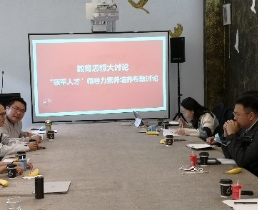
Li Junyang, Vice Minister of the Working Department of the Party Committee of Teachers of SEU, reviewed the last great discussion on education ideology and the concept of cultivating “leading talents”, and explained in depth the spirit and connotation of the new round of the great discussion on education ideology “The Mission of SEU to Establish Moral and Educate People and the Action of SEU to Put Students in the First Place “. He pointed out that leadership is one of the important “four strengths” of “leading talents”; there are differences in knowledge bases, teaching methods, and learning habits among disciplines in different schools, and generally speaking, the cultivation of leadership literacy in our university is still in the exploration stage. Vice Minister Li Junyang emphasized the importance and urgency of the educational reform to improve leadership literacy for all students and hoped that teachers from all faculties would join hands to discuss and work together.
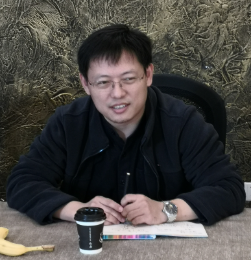
Li Junyang, Vice Minister of the Working Department of the Party Committee of Teachers of SEU
Vice Dean Pu Zhengning of the School of Economics and Management said that the school would fully support the relevant educational reform work, and discussed the connotation of different “leading talents”, including “strategic scientists”, “technological entrepreneurs” and “excellent engineers”, in the light of the spirit of the 20th National Congress and the national socio-economic construction needs. We need not only to support the research on leadership-related theories, but also to clarify the orientation of “leadership talent” training and the content requirements of leadership literacy for each major, and to strengthen the combination of the first, second, and third classes.
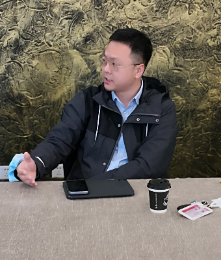
Vice Dean of the School of Economics and Management, Pu Zhengning
Professor Lv Hongjiang, Vice Dean of the School of Economics and Management and head of the “Leadership Literacy” course for graduate students, introduced the construction of course resources and teaching materials for the leadership platform, as well as the concept of building “three cross-integration” engineering leadership training, which means enhancing the cross-national “human destiny community” value leading function of the leadership course, broadening the cross-disciplinary “open social science” vision of the leadership course, and enriching the composite education function across science and practice of the leadership course. Dean Lv introduced the course resources and applications of the leadership literacy course, and discussed the online and offline hybrid teaching reform combining “theory & practice” and “foundation & specialization”, as well as the promotion of action learning methods and the integration of class and competition in the undergraduate and graduate leadership training system.
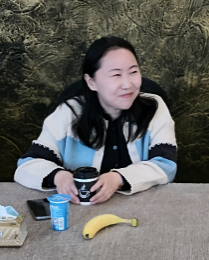
Vice Dean of the School of Economics and Management, Lv Hongjiang
Associate Professor Zhou Lulu, Secretary of the Party Branch of the Department of Business Administration and leader of the “Leadership and Team Management” course for undergraduates, combined with her cross-school teaching experience, introduced the common heuristic methods such as case study, role simulation, brainstorming, world coffee, debates, etc., and took action learning as an important way of leadership training, encouraged students to share leadership, develop leadership, and practice leadership in action learning groups, and develop resources that support cross-fertilization, including course-related software and hardware resources.
Zhang Haochi, Tan Xiaosi, Xu Xin, Zhang Xuanru, and You Qiwei from the School of Information Technology, Zhang Xiaoling, Ge Hufei, and Xu Qin from the Department of Business Administration of the School of Economics and Management also combined the characteristics of their disciplines, the characteristics of the leaders around them, students’ feedback, teaching practice, and perceptions, and had an in-depth exchange of views on the issues and breakthroughs of leadership literacy training with the theme of “classes are the most important, students are the first priority”.
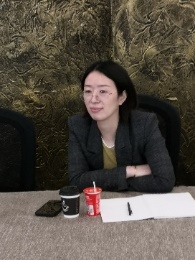
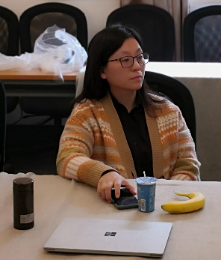

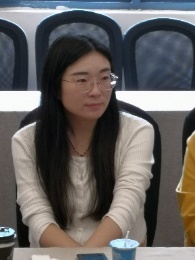

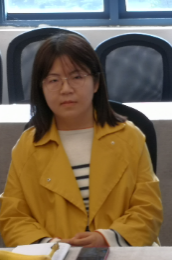
Representatives of young teachers who participated in the discussion
Focusing on how to implement the concept of “classes are the most important, students are the first priority”, this seminar discussed the construction of curriculum resources, joint faculty construction, and students’ practical activities system, which provided the direction and ideas for the subsequent educational reform of cross-fertilization to cultivate leadership literacy.
(Photos and Text: Ge Hufei)
Translated by: Luo Jiaoying
Reviewed by: Li Zhaoting

